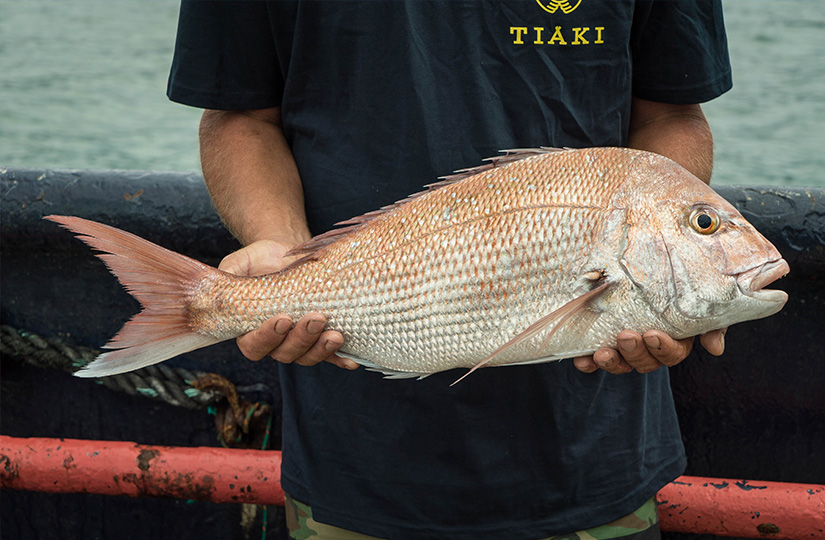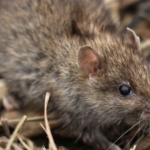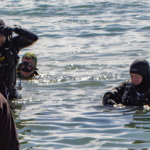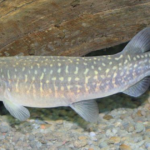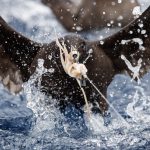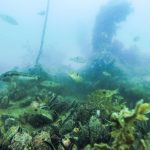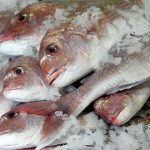Caring and conservation are at the heart of a new fish harvesting plan.
Better fish, more money and greater sustainably will certainly be the results of a new fishing technology and brand invented here in New Zealand.
But the story is far more profound. It’s about the greatest shift in philosophy and practice any part of our primary sector has attempted in generations.
Every New Zealand business depending on the ecosystem for its livelihood has to start the same journey. If they don’t, they will ultimately fail, doing great damage to the economy and the environment.
Here are the big themes for fishing, which absolutely apply across the sector.
- Understand what’s wrong: Trawling techniques barely changed for generations exhaust, damage and kill most fish, particularly deep water species. By the time the fish are dead on deck, their quality and value is deeply impaired. This has led to utter commoditisation of the catch, uneconomic business models and barely sustainable fisheries.
- Find the key to transformation: A decade ago, Nelson-based scientists at Plant & Food, the Crown Research Institute, realised landing live fish was the way to reinvent the sector.
- Collaborate deeply: The three companies are highly competitive, while scientists and primary sector civil servants in the project have some legitimately different drivers. Yet they have worked effectively together, combining the best of each, participants say.
- Innovate radically yet pragmatically: The heart of the new technology is a long plastic tube to gently collect the fish at the end of conventional trawl lines. The maker is Aflex, a Nelson company known for its inflatable plastic swimming pools, sea cages and marker buoys.
- Capitalise on the unexpected: It turns out the technology helps reduce the unwanted bycatch of under-sized fish and other species. This improves fish stocks and sustainability, while maximising the economically viable proportion of the catch.
- Communicate the real value: As part of the PGP, the three companies have developed Tiaki, the brand under which they’ll sell fish harvested this way. The name is from the Maori for caring and conserving.
- Build new value chains: The companies will only maximise the value they are creating, and capture their fair share of it, if they get much closer to consumers. They need to innovate as radically in their channels to market as they are in harvesting.
- Maximise the intellectual property: Conventionally, the holders of IP and the first users of it seek to control its spread to maximise their short and medium gains.
“We’re physiologists by training,” says Suzy Black, leader of the team. They knew unstressed live fish would be far superior. They began experimenting with how to land them in quantity.
In due course, this evolved into the Precision Seafood Harvesting project, a Primary Growth Partnership with $48 million of funding coming 50/50 from government and our three biggest fishing companies – Sanford, Aotearoa Fisheries and Sealord.
Change cultures: Landing dead fish was the way trawling worked, generations of fishing crews believed. But the prototype crew was startled when they landed the first live, perfect hoki. So colourful and vigorous were the fish they thought it was a new species. Now all the fishing crews involved in the programme are keen converts and eager innovators.
While the story is simple, there are many facets to communicate about fish, sustainability, food, technology and fishing crews. This is how the story telling has developed so far at www.tiaki.com. There’s still a long way to go to create deep, enduring relationships with consumers.
In this case, Plant & Food own the patents and the three industry partners are the first movers. But the technology is so beneficial and easier to copy than, say, electronics. Lots of fishing companies around the world will try.
Maybe we should make it NZ’s gift to the world in the cause of sustainable fisheries, Volker Kuntzsch, Sanford’s CEO, suggested at Tiaki’s launch on Wednesday.
He’s right. It would grow the market far faster than we could alone. Then we’d need to be the very best in the market, benefiting from the kudos of inventing it. Hopefully, Tiaki is just the beginning of our primary’s sector’s radical reinvention of its relationship with the ecosystem, which would bring great benefit to our economy.
Reproduced with permission. Credit: Sunday Star Times and www.stuff.co.nz


